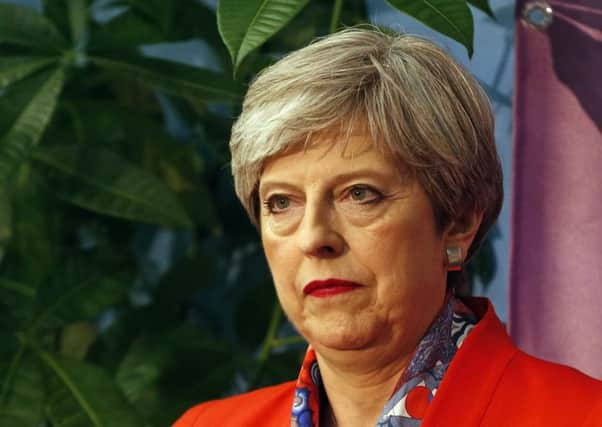Bill Jamieson: '˜Just about managing' after election


And all this against the backdrop of a slowing economy and complete confusion over the UK’s approach to the Brexit negotiations. Prime Minister Theresa May set out to help the “just about managing”. How ironic she is in exactly that boat now.
Such an outcome should have shaken the stock market to the core. And yet, as I discussed last week, it remained astonishingly resilient as the Conservative poll lead began to vanish.
• READ MORE: General election news
Advertisement
Hide AdAdvertisement
Hide AdAnd on Friday share prices rose in the wake of the election outcome. The FTSE 100 ended 77.35 points higher at 7,527.33 – just a whisker short of its all-time high of 7,547.63. Even the FTSE 250 Index – more reflective of domestic, UK-facing stocks and thought to be more vulnerable to a Conservative election setback – closed 26.55 higher at 19,769, also within spitting distance of its record high.
How could such a traumatic election result – one that almost all the experts, commentators and poll pundits failed to predict – be greeted with such seeming equanimity?
By all conventional reckoning, the London market should have slumped – with investor apprehension heightened by a stunning surge of support for far Left Labour leader Jeremy Corbyn and talk of a second election before too long?
Much of this seemingly defiant strength is due to the latest fall in sterling. The market sees this as a boon for those global behemoth FTSE 100 constituents where the bulk of earnings and assets are overseas and in currencies that have risen against sterling. But even after the pound’s slide from $1.295 as the polls closed to $1.2743 on late Friday afternoon, it is still in the middle of the $1.20-$1.34 range held since the EU referendum vote.
It hardly suggests a collapse in overseas confidence in the UK and its currency. The sanguine view is that it is still a Conservative administration – if only just. There is no appetite, either within the government or the voters, for an early election; and the striking failure of Theresa May to win a mandate for a “hard Brexit” could see the government’s negotiating stance moving towards a more business-palatable, Norway-style EFTA membership outcome.
But this immediate reaction must be treated with caution. Sterling could see further falls. The spectre of a second election as early as the autumn and higher prices for imported goods further corroding household spending power, could cause investors to shun UK assets.
Advertisement
Hide AdAdvertisement
Hide AdArguably the best summary of prospects has come from Colin McLean, managing director of Edinburgh-based SVM Asset Management. He warns that falls of 2 to 3 per cent are likely in sectors such as property, media, retail and challenger banks. But FTSE 100 sectors with international earnings – pharma, oils, mining, exporters – should gain on the weaker pound.
• READ MORE: General Election 2017: pound falls but market rises
A barely workable Conservative majority, he predicts, will weaken Britain’s hand in Brexit negotiations and may delay the start of talks. “If anything can be taken from a confused election result”, he writes, “it is that the electorate does not want a hard Brexit. This may already be reflected in the calmness with which investors approached the election.”
However, investors, he adds, “usually pay too much attention to politics – elections reinforce the notion that governments can control the direction of the economy. In practice, business confidence is not so easily directed, and interlinking with the global economy is a straightjacket”.
Simon Brazier, manager of the Investec UK Alpha fund, says a second EU referendum cannot be discounted and prospects for a “softer” Brexit have risen. Schroders economist Azad Zangana says: “Europe can now ignore what Theresa May wants and pitch something that is a lot softer, knowing that the rest of parliament is more likely to support it.”
All told, we are likely to see an investor swing to non-UK assets for now. Iain Scouller of Stifel Securities told Citywire he has updated his list of global investment trusts with low UK exposure. He points out their overseas earnings and the value of their non-UK holdings could benefit if the pound falls again. Their diversified, global portfolios can make them good a bolt hole if markets are volatile.
Prominent in his list is Securities Trust of Scotland (UK exposure 15.9 per cent); Murray International (12.2 per cent), Martin Currie Global Portfolio Trust (11.4 per cent) and Scottish Mortgage at just 4 per cent. It’s a Brexit – but not at all as Theresa May imagined it.